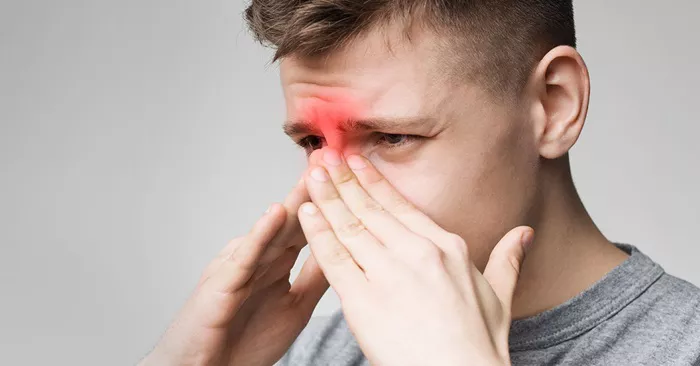Allergies are a common ailment that affects millions of people worldwide, causing symptoms such as sneezing, itching, runny nose, and congestion. Among these symptoms, a bloody nose, or epistaxis, can be particularly concerning. Understanding why allergies can lead to bloody noses involves exploring the mechanisms of allergic reactions, the impact on nasal tissues, and potential preventative measures. This article delves into the connection between allergies and bloody noses, examining the causes, contributing factors, and strategies for managing this condition.
The Mechanisms of Allergies
What Are Allergies?
Allergies occur when the immune system overreacts to substances that are typically harmless, known as allergens. Common allergens include pollen, dust mites, mold, pet dander, and certain foods. When an allergic individual is exposed to an allergen, their immune system produces antibodies called immunoglobulin E (IgE). These antibodies trigger the release of chemicals such as histamine, leading to the symptoms associated with allergies.
Nasal Allergic Reactions
The nasal passages are a primary site for allergic reactions, especially in conditions like allergic rhinitis, commonly known as hay fever. When allergens enter the nasal passages, they bind to IgE antibodies on mast cells, prompting the release of histamine and other inflammatory mediators. This causes the blood vessels in the nasal mucosa to dilate and become more permeable, resulting in nasal congestion, itching, and increased mucus production.
How Allergies Cause Bloody Noses
Nasal Tissue Inflammation and Fragility
One of the primary reasons allergies can cause bloody noses is the inflammation of the nasal tissues. The release of histamine and other inflammatory substances leads to swelling and irritation of the nasal mucosa. Over time, this chronic inflammation can weaken the blood vessels in the nasal lining, making them more prone to rupture and bleeding.
Frequent Nose Blowing and Irritation
Allergy sufferers often experience frequent nasal congestion and runny nose, leading to repeated nose blowing. This constant mechanical irritation can damage the delicate blood vessels in the nasal passages, increasing the likelihood of bleeding. Additionally, the act of rubbing or scratching the itchy nose can further exacerbate the problem.
Dryness of the Nasal Passages
Allergic reactions can sometimes lead to dryness of the nasal passages. Medications used to treat allergies, such as antihistamines and decongestants, can also contribute to nasal dryness. Dry nasal mucosa is more susceptible to cracking and bleeding, especially when combined with the irritation from frequent nose blowing or sneezing.
Nasal Crusting and Infection
Persistent inflammation and mucus production can result in the formation of nasal crusts, which can adhere to the nasal lining and cause bleeding when dislodged. Furthermore, chronic nasal inflammation can predispose individuals to infections, which can further damage the nasal tissues and lead to bleeding.
Contributing Factors to Bloody Noses in Allergy Sufferers
Environmental Factors
Environmental factors play a significant role in the occurrence of bloody noses in allergy sufferers. Dry indoor air, especially during winter months when heating systems are in use, can dry out the nasal passages, making them more vulnerable to bleeding. Outdoor factors such as high pollen counts or exposure to pollutants can exacerbate allergic reactions and nasal irritation.
Use of Nasal Sprays and Medications
Many people with allergies use nasal sprays, such as corticosteroids or decongestants, to alleviate their symptoms. While these medications can be effective in reducing inflammation and congestion, they can also cause side effects like dryness and thinning of the nasal mucosa, increasing the risk of bleeding. Overuse of decongestant sprays can lead to rebound congestion, which may prompt even more frequent nose blowing and irritation.
Underlying Health Conditions
Certain underlying health conditions can predispose individuals to nasal bleeding. Conditions such as nasal polyps, deviated septum, or chronic sinusitis can exacerbate the inflammation and irritation caused by allergies. Additionally, systemic conditions that affect blood clotting, such as hemophilia or the use of blood-thinning medications, can increase the risk of nosebleeds.
Age and Genetics
Age and genetics can also influence the likelihood of experiencing bloody noses due to allergies. Children and elderly individuals may have more fragile nasal tissues, making them more susceptible to bleeding. Genetic factors can determine the robustness of blood vessel walls and the propensity for allergic reactions, impacting the frequency and severity of nosebleeds.
Preventative Measures and Treatments
Hydration and Humidification
Maintaining adequate hydration and using humidifiers can help keep the nasal passages moist and reduce the risk of bleeding. Drinking plenty of water and using saline nasal sprays can also aid in moisturizing the nasal mucosa. In dry climates or during winter, using a humidifier in the home can prevent nasal dryness and irritation.
Gentle Nose Care
Practicing gentle nose care is essential for preventing bloody noses. Instead of forcefully blowing the nose, individuals should blow gently and one nostril at a time. Using soft tissues and avoiding excessive rubbing or picking of the nose can minimize mechanical irritation. Keeping fingernails trimmed can also prevent accidental injury to the nasal lining.
Allergy Management
Effective management of allergies is crucial in reducing the frequency and severity of symptoms, including bloody noses. This involves identifying and avoiding triggers, using allergy medications as prescribed, and considering immunotherapy for long-term relief. Over-the-counter and prescription antihistamines, nasal corticosteroids, and leukotriene inhibitors can help control inflammation and prevent nasal tissue damage.
Nasal Moisturizers and Barrier Ointments
Using nasal moisturizers and barrier ointments can protect the nasal mucosa from drying out and becoming irritated. Products such as saline gels or petroleum jelly can be applied to the inside of the nostrils to maintain moisture and create a protective barrier against irritants.
Addressing Underlying Conditions
Treating any underlying health conditions that contribute to nasal bleeding is essential. For instance, managing chronic sinusitis or addressing anatomical issues like a deviated septum can alleviate nasal congestion and reduce the risk of nosebleeds. Consulting with an ear, nose, and throat (ENT) specialist can help identify and treat any contributing factors.
Caution with Medications
When using nasal sprays and other medications for allergy relief, it is important to follow the recommended dosages and guidelines. Overuse of decongestant sprays should be avoided to prevent rebound congestion and additional irritation. If nasal corticosteroids are being used, proper technique and dosage should be followed to minimize side effects like mucosal thinning.
When to Seek Medical Attention
While occasional bloody noses related to allergies can often be managed at home, there are instances when medical attention is necessary. Individuals should seek medical care if they experience frequent or severe nosebleeds, if the bleeding does not stop within 20 minutes, or if they have symptoms such as dizziness, weakness, or significant blood loss. Additionally, if there are signs of infection, such as fever or purulent nasal discharge, medical evaluation is warranted.
Conclusion
Allergies can cause bloody noses through various mechanisms, including inflammation and fragility of nasal tissues, frequent nose blowing, dryness, and infection. Understanding the connection between allergies and nasal bleeding is essential for effective prevention and management. By maintaining hydration, practicing gentle nose care, managing allergies, using nasal moisturizers, addressing underlying conditions, and being cautious with medications, individuals can reduce the risk of bloody noses and improve their overall nasal health. If nosebleeds persist or are severe, seeking medical attention is important to ensure proper diagnosis and treatment.
[inline_related_posts title=”You Might Be Interested In” title_align=”left” style=”list” number=”6″ align=”none” ids=”8798,8794,8790″ by=”categories” orderby=”rand” order=”DESC” hide_thumb=”no” thumb_right=”no” views=”no” date=”yes” grid_columns=”2″ post_type=”” tax=””]
































